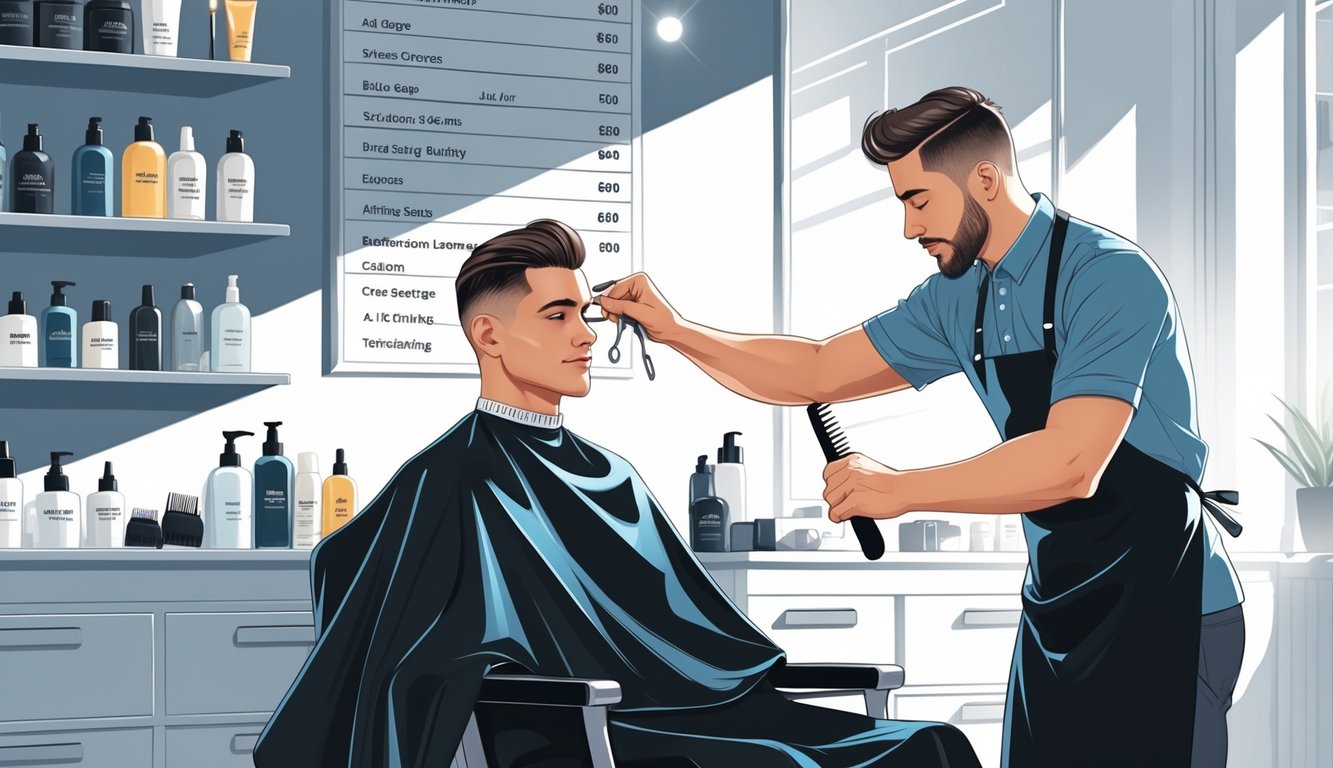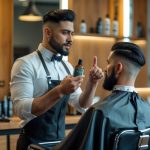
Marketing Strategies and Social Media Influence
The more I try to make sense of barbershop pricing, the more obvious it gets: if you’re not loud and borderline obnoxious about what makes your shop different, you’re invisible. I mean, who’s gonna notice another “walk-ins welcome” sign or the hundredth photo of a blurry fade on Instagram? Apparently, you need to shout about your quirks or you’ll just blend into the background noise of the internet.
Promoting Unique Grooming Services
It’s almost funny—barbers will get really good at something super specific, like nose hair waxing or those weird lightning bolt beard graphics, and then never mention it. Years ago, I slapped a “ask about beard graphics” sign under the cash register and suddenly every college kid wanted a zigzag on their face. Did it look good? Not really. Did my calendar fill up? Absolutely.
Shops that go all-in on oddball services—think ammonia-free color or “chairside scalp massages”—end up getting random shoutouts on Reddit threads. Goldie’s blog says showing off signature oils or wild before/after pics does way more than any generic “open late” post. But seriously, don’t waste time pushing niche stuff on platforms where nobody in your area hangs out. If you’re in a business district, LinkedIn posts about last-minute beard trims for suit guys might actually work better than Instagram. Weird, but true. Reviews and word-of-mouth from these offbeat services? Way better than a slick logo.
Leveraging Social Media for Client Attraction
Here’s where everyone pretends they’re a social media genius, but it’s mostly a mess. The National Association of Barbers’ social media guide says to pick one platform and actually do it well—don’t just spam haircut memes everywhere. I learned that the hard way after months of tweeting into the void. Focused effort wins, even if it’s just one good post a week.
I keep telling new barbers: forget the fancy logo, show what actually happens in your chair. Talk about what bugs you, show how you fix mistakes, post real reviews (especially if you can snag them from Google and toss them on Facebook). Supposedly, public client praise can double bookings—like, 68% more, if you believe the stats. Automated booking links, quick videos of your “no small talk” cuts, blunt posts about your actual prices—those worked for me after years of pretending my price list was a state secret. If you’re not using polls, DMs, tagged photos, whatever, you’re just not even trying.
Loyalty Programs and Client Retention
So prices creep up—nobody really says anything. It’s the loyalty programs and those “just one more stamp” moments that keep people coming back, even if the “reward” is just a sticker or a few app points. Not sure if that’s sad or genius.
How Loyalty Programs Affect Pricing Perception
I caught myself last week, staring at my punch card, one stamp away from a free touch-up. Guy in front of me mutters, “Did this cost more last month?” and everyone just ignores him. Prices go up, but if there’s a halfway decent loyalty thing, I don’t even notice. Digital programs are everywhere now—CUT Loyalty swears people come back more and complain less about price bumps. Forbes says bribing old clients with rewards is cheaper than chasing new ones on Instagram, and I mean, that checks out.
I remember my old barber hiking prices, then rolling out a basic points system like it was some grand gesture. Nobody cared, because suddenly we were all one visit away from a freebie. Sticker shock fades when you’re chasing a discount.
Rewarding Regular Clients
I once stood around for twelve minutes just to get an extra loyalty point—my phone was dead, the Wi-Fi password was wrong, whatever. If you want me to keep coming back, give me an actual reason. Even GlossGenius says real loyalty programs work better than those tired punch cards. People come back if they see their perks stacking up.
Honestly, the best part is when a barber remembers my last cut or pretends to care about my stories. Regulars get the good stuff—early booking, secret discounts, maybe a free upgrade right after a sneaky price hike. Client retention isn’t just math. It’s about tiny details—names, preferences, and the occasional freebie when you hit VIP status, even if nobody ever mentions the price went up.
Retail Products and Upselling Opportunities
Nobody talks about how weird it feels when a barber grabs a bottle mid-cut and suddenly your total’s higher. Is it just me? I start thinking about all those cross-sold shampoos, gels, and colognes that smell like high school gym class. Upselling in men’s grooming is sneaky—practical, but sneaky.
Recommending Haircare and Grooming Products
You’d be amazed how many guys just use whatever’s cheapest at the drugstore. “That’s fine, right?” Not really. Drugstore shampoo is mostly detergent and perfume. When I point out what a decent sulfate-free shampoo does for your scalp, most guys suddenly get why they’re flaking.
Retail isn’t just shelf clutter. IntheChair’s upselling guide says if you match the right product to a real problem—dandruff, dry beard, whatever—the sale happens naturally. I keep a cheat sheet behind the mirror for quick nudges. If someone looks nervous about thinning hair, I suggest thickening conditioner. One of my old mentors moved more pomade in a month than some chains, and all he’d say was, “Wonder why your hair never looks the same at home?” No science, just reality.
The Role of Colognes and Finishing Touches
Colognes—nobody wants to admit they care, but they’ll grab one anyway, then sniff it in the parking lot. Barbers act like fragrance experts: “cedar notes,” “classic aftershave vibes.” Honestly, it’s about routine and confidence, not some fancy scent breakdown. Shops run sampler deals—a quick spray at the end, “lasts through the gym.” That sells more than any window display.
Finishing touches like beard oils and moisturizers matter too. Mailroom Barber Co says 61% of guys want “all-natural” products—maybe true, maybe just a way to dodge parabens. The trick isn’t the stat, it’s the timing. Offer moisturizer after a shave, let the guy try it, and suddenly he’s buying it. Feels personal, not like a pitch. I swear you could sell anything if you make it feel like it’s just for them, even if nobody agrees on the “best” cologne.



